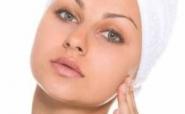Advertisement
Featured article
Acne products - how do they work?
A quick survey of acne treatments

Anyone who suffers from acne knows the heartache it can cause. Acne can cause a person physical pain and emotional heartache, and one that is no longer considered a problem that only affects youth.
Treatment depends on the type and severity of the acne problem; some treatments can be expensive and even painful. Most importantly, nobody should attempt to treat acne without the help of a qualified physician, as you need to be sure of the underlying cause to get the right treatment. Also, everyone’s skin is slightly different, and what might work for one acne patient won’t always work for another. Once again, a doctor can help find the right treatment for their patient’s skin type.
Acne is actually caused by hormonal shifts that take place within the human body that produce too much oil. Without treatment, this oil builds up and clogs pores. That can affect how new skin cells develop, slowing or altering them, which can result in permanent scarring.
article continuedAdvertisement
A certain amount of bacteria grows naturally on the skin. This bacteria can sometimes get into the skin, causing irritation and inflammation that result in blackheads, whiteheads, pimples and pus-filled lesions. In such instances, treatment plans must deal with multiple issues at once. That means that more than one acne treatment could be required.
While there is no “one size fits all” acne treatment, there are several that have proven successful. Here are some of them:
Alpha Hydroxy Acids
Certain types of alpha hydroxyl acids help treat acne. Two of the best are glycolic acid and lactic acid. Both work by removing dead skin cells to help remove underlying inflammation, stimulating new cell growth while also reducing the appearance of scars.
Antibiotics
Medication can sometimes clear up acne. Drugs can be administered topically, orally, or both. Sometimes using an antibiotic in conjunction with a good cleansing system or with a pore cleanser is sufficient. Other times treatment may require a more thorough program employing multiple remedies at the same time.
Chemical Exfoliants
These work to remove dead skin cells by sloughing them away. They also help unclog plugged pores. Unfortunately a lot of chemical exfoliants are abrasive, causing skin redness and irritation.
Keratolytic Agents
These work to remove excess keratin from the skin. Keratin, in too high doses, clogs pores and causes excess oil production. In severe cases, excess keratin can also be a breeding ground for bacteria, thereby further complicating the acne issue.
Pore Cleansers
Clearing out pores can sometimes be enough to dial back or even prevent acne issues. Products that contain the ingredients salicylic acid and benzyl peroxide seem to work for a broad spectrum of people.
It is however possible to build up resistance to these products. The best way around that is to rotate them from time to time at a physician’s recommendation.
Additionally, it’s important to note that both pore cleansers can cause a certain amount of skin irritation. It will be worse in some patients than others, and a doctor may opt to reduce the product’s strength until a good balance is found.
Sebum Regulators
These type of products help the skin regulate the oil it produces and secretes, which in turn can lead to pore clogging, dead skin cells and inflammation. Most good acne products contain at least one sebum regulator, such as selenium sulfide or zinc pyrithione.
Sulfur
Sulfur works as a treatment in some acne issues. It removes dead skin cells and unclogs pores effectively. However, it can burn and irritate the skin, and the odor is offensive.
Zit Zappers
Just like they sound, these acne products use a mild electric charge to zap an acne zit into submission. One such recommended product is Zeno. It uses the human body’s natural shock response to kill bacteria. That clears up the pimple problem at its core and allows skin to return to normal in many instances.
Conclusion
The key is often a multi-pronged approach to acne treatment in which two or more of the above are employed. However, determining the best plan for an individual should always lie in the hands of a skin care professional. That’s the best place to start!
Got something to say?
We are looking for authors! Submit an article.
Related articles
How to cleanse skin properly
Look after your skin and it will look after you
Review: Noxzema Original Deep Cleansing Cream
A cleansing cream and make-up remover in one
Review: Lush Butterfly Ball Ballistic
A fun bath treat for under £2
Top Stories
Review: Bare Escentuals Buxom Lips
A review of the fantastic new lip plumper
Beating hayfever with supplements
Some nutritional ideas to beat the seasonal sneezing
Review: Revlon ColorStay Overtime LipColor
For beautiful-looking lips you'll find the ColorStay Overtime LipColor hard to beat
Comments
Add your comment